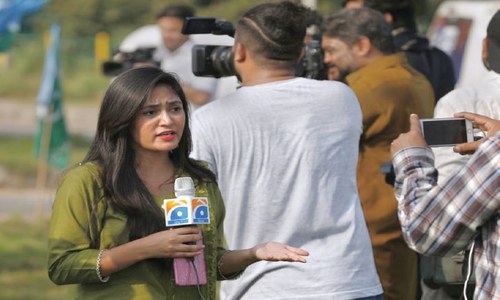KARACHI: An international freedom advocacy group and research organisation has found Pakistan among top 10 countries in the world where internet freedom has been on the decline and raised concerns over the rules proposed by the country that could further damage cyber liberty.
In its latest report titled “Freedom on the Net 2021: The Global Drive to Control Big Tech”, the Washington-based Freedom House came up with details of cyber freedom in different countries around the world and ranked Pakistan seventh among “abusers of internet freedom”.
Weighing different indicators of internet freedom, the advocacy group gave reasons and facts which led to its ranking. Discussing data sovereignty as an excuse for surveillance, it cited examples of different countries and highlighted the situation in Pakistan where the government has recently introduced new regulation for internet users and service providers.
Washington-based Freedom House ranks country seventh among ‘abusers of internet freedom’
“In some cases, such data localisation requirements have been introduced in the context of content regulation,” said the report. “Pakistan’s proposed Removal and Blocking of Unlawful Online Content (Procedure, Oversight and Safeguards) Rules, the latest version of which was published in November 2020, outline requirements for social media companies to establish one or more data servers in the country.”
The report expressed concern over the proposed regulation in the country which, it said, would lead to negative impact on social media companies and also the users. “Pakistan’s proposed rules have raised alarms about their impact on end-to-end encryption. The draft requires social media companies and service providers with more than 500,000 users to hand over personal data in a decrypted and readable format when requested by the Federal Investigation Agency,” it added.
In its key findings, the Freedom House said global internet freedom had declined for the 11th consecutive year. The greatest deteriorations, it added, were documented in Myanmar, Belarus and Uganda, where state forces launched crackdown amid electoral and constitutional crises.
Myanmar’s 14-point score decline is the largest registered since the Freedom on the Net project began.
The report also blamed the governments in different parts of the word for clashing with technology companies on users’ rights, referring to at least 48 countries where the authorities pursued new rules for tech companies on content, data and competition over the past year.
“With a few positive exceptions, the push to regulate the tech industry, which stems in some cases from genuine problems like online harassment and manipulative market practices, is being exploited to subdue free expression and gain greater access to private data,” it said.
The report also found Pakistan among 24 countries which have initiated measures governing how platforms treat content, and among 38 nations where the authorities pursued reforms affecting companies’ management of data. The findings suggested that not in Pakistan alone, the internet freedom faced a serious challenge around the globe.
“More governments arrested users for nonviolent political, social or religious speech than ever before. Officials suspended internet access in at least 20 countries, and 21 states blocked access to social media platforms. Authorities in at least 45 countries are suspected of obtaining sophisticated spyware or data-extraction technology from private vendors,” it added.
Published in Dawn, September 22nd, 2021
















































